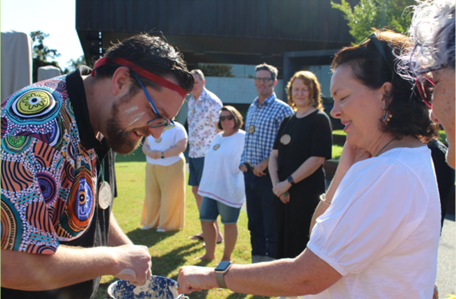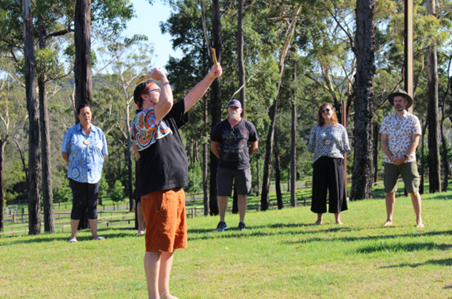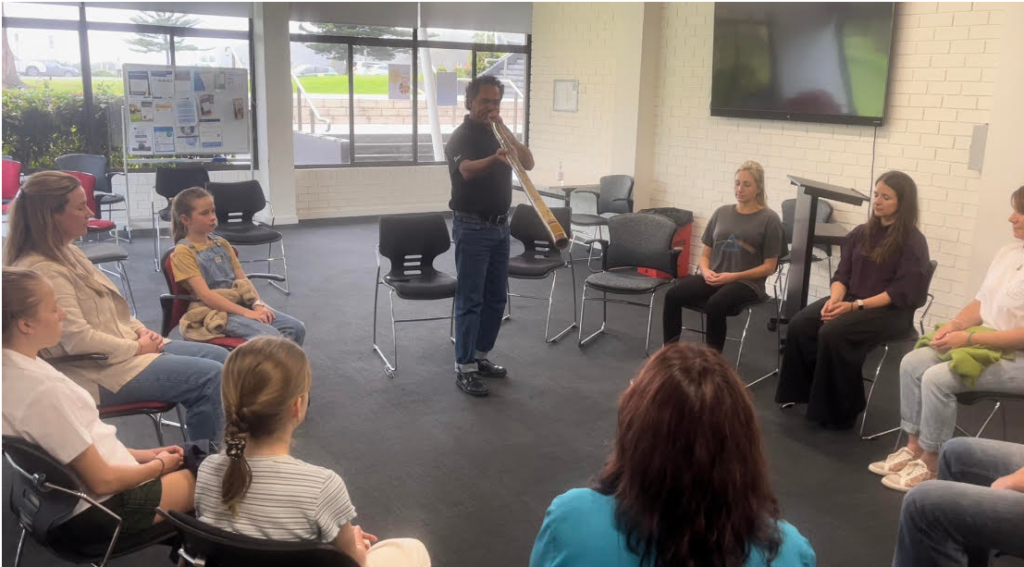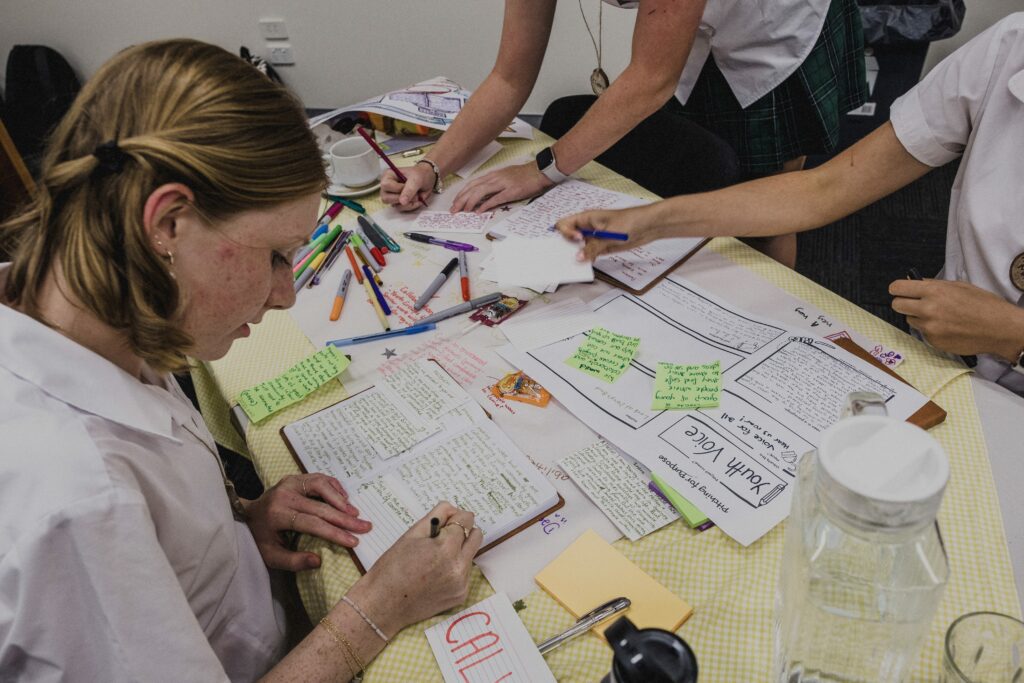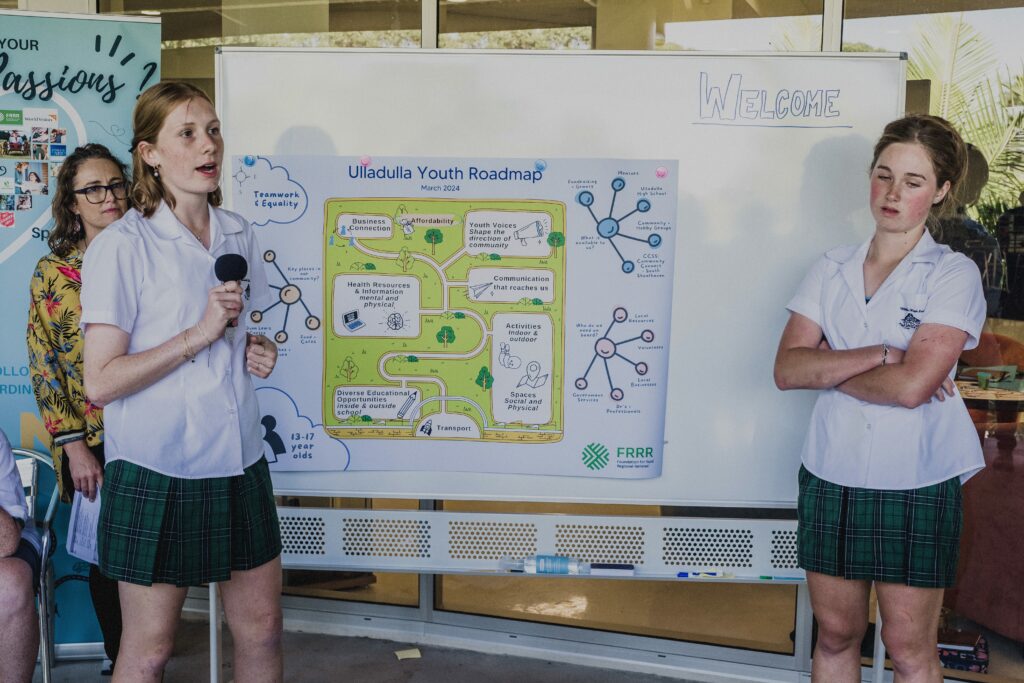Foundation for Rural & Regional Renewal (FRRR)
This article is a personal reflection from our IRCF Program Facilitator in Ulladulla, Monique.
Over the past five years, the IRCF program has woven a rich tapestry of community growth and cultural understanding through an array of touchpoints, workshops, group discussions, events and training sessions. These have allowed community members to network and learn a little bit more about our local Indigenous culture.
As the Ulladulla Community Facilitator, I’ve had the privilege of participating in numerous Welcome to Country ceremonies, each one deepening my appreciation for our connection to this beautiful land and its traditional custodians. I have also enjoyed hearing many community members personalising their Acknowledgements of Country and learning about their connection to this beautiful Yuin nation.
Some of my memorable experiences with community members include:
- Participating in my first smoking ceremony to officially open the High School Sanctuary;
- Witnessing artist Nicole Smede sing in the Dhurga language where her beautiful voice resonated with the spirit of our culture, reminding us of the importance of preserving endangered languages as well as endangered species;
- Didgeridoo meditation with Matt King;
- Standing barefoot, with my hand being painted in ochre;
- Listening to Elders speak about the endangered Black Cockatoo;
- The moving sounds of clapsticks; and
- The graceful dances and storytelling that provided deep insights into Indigenous traditions.
I have also enjoyed sitting in circle with the Ulladulla Yarning Mob to explore how we can help them connect to cultural practices, as well as discussing with local groups how they can learn more about culture and support our local Indigenous service providers.
Throughout our road mapping, workshops, and discussions, we embraced the ancient practice of ‘Sitting in Circle.’ This method, rooted in Indigenous cultural ways, ensures everyone has an equal seat at the table, fostering safe spaces for discussion and allowing for the sharing of passions and perspectives. One local resident, Webby from Lake Conjola, commented that this inclusive hosting method made him feel ‘safe and heard’ and encouraged him to explore various community activities.
Sitting in Circle has also empowered our community to bravely tackle important and difficult conversations. We’ve explored collective needs over individual priorities. Exploring ways to support local Indigenous and other minority groups through our community vision and principles, conversations, offers of support and actions.
I am grateful for the opportunities the IRCF program has provided, allowing myself and many community members to continue our lifelong journey of learning about Indigenous culture. My heartfelt thanks go to the local Indigenous community members who have generously answered our questions, supported and inspired our learning.
Roadmap workshops have been an important part of the IRCF program in each community. Each year in each of the eight participating communities, a diverse group of people from across the community sector comes together to harness each other’s knowledge and together map out what will make the greatest difference in their community.
The competitive nature of many funding and granting programs can hinder collaboration between not-for-profits. The annual IRCF roadmapping process is a space for the community to ‘un-learn’ competition and build enhanced local partnerships and relationships.
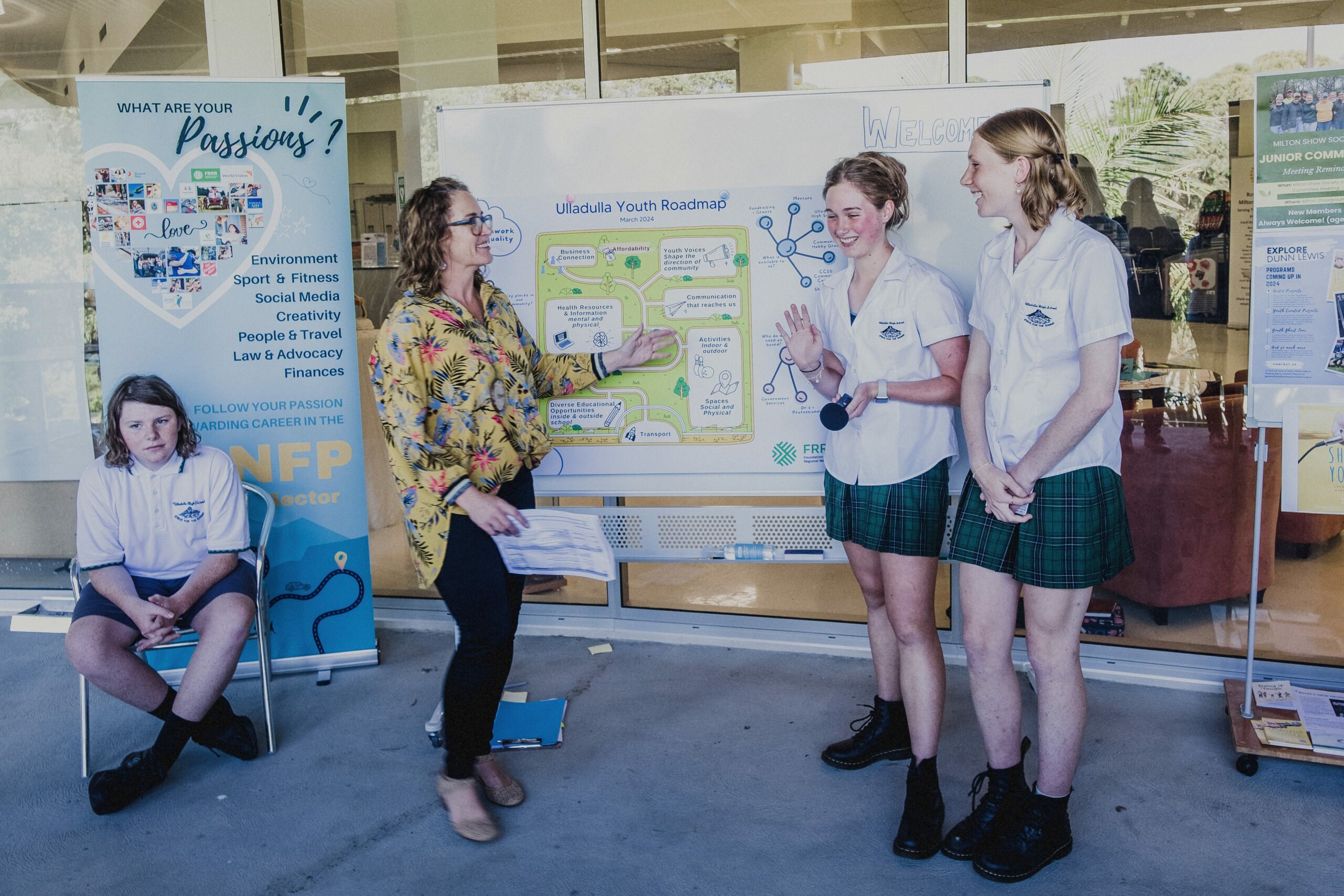
One South Coast participant reflected that, “Roadmapping was brilliant. We had a big demographic of people, and it made everything very concise and clear.”
Each roadmap developed is a unique reflection of the priorities of each IRCF community, with a few recurring themes. One of those recurring themes is engaging young people as the next generation of leadership for communities and the not-for-profit sector. This was tackled head on when young people from Ulladulla High School came together in March to develop a roadmap of their own.
The result: a ‘Youth Roadmap’ for the community with some brilliant ideas for how young people can work alongside existing community organisations, events and infrastructure to enhance them and get the next generation more involved. There is now a movement for change building in partnership with local backbone organisation, the Dunn Lewis Centre.
So why is developing a roadmap so important? They create a shared vision that can act as a map for how the community – and young people – can move forward together with greater connection and a shared vision and common goals for a thriving future.
Recently our IRCF Program Manager, Nancy Sposato, along with representatives from Junee Community Centre, Junee Community Power and Junee Shire Council spent three joyful days learning about The Art of Hosting at a workshop led by Percolab (formerly Campfire Coop) in Bright, VIC.
They came together with 40 community leaders from across the country. Each leader brought a passion for nurturing community conversations and a desire to do it better.
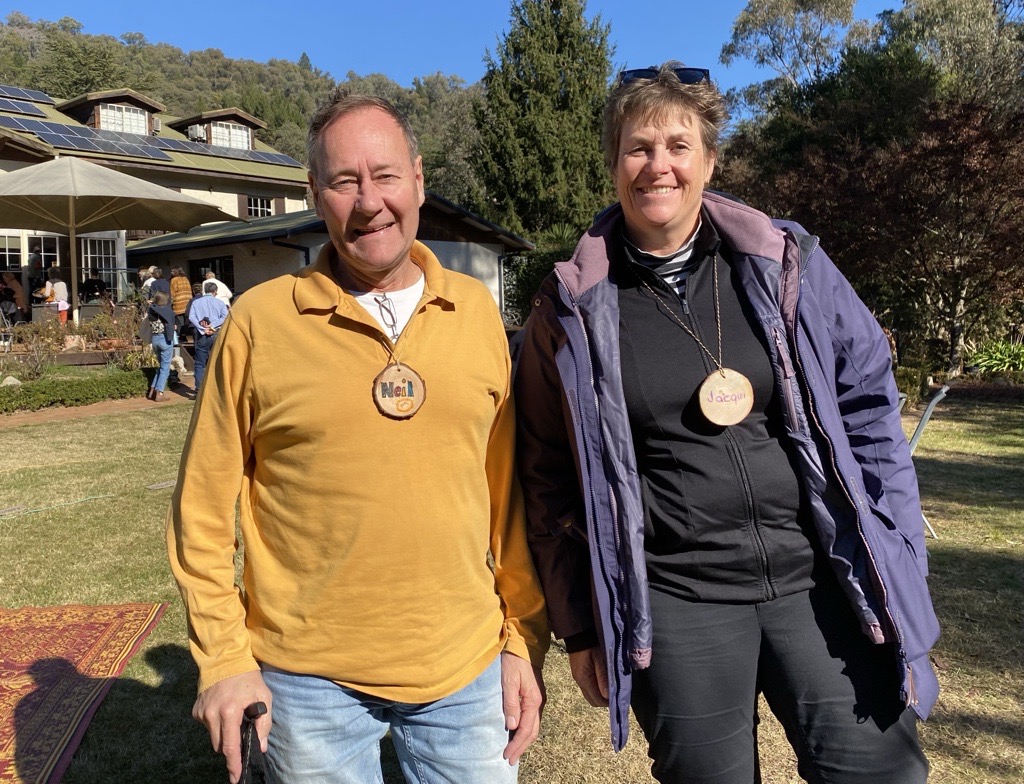
For Junee members, this participation was supported by an IRCF Toolbox grant with local leaders intending to apply skills gained towards developing effective and meaningful ways to foster inclusive community engagement and to have a shared language to be able to support each other in their efforts well into the future. The Junee initiatives that will directly benefit from this investment in people include a project that engages young people in the NFP sector, the development of culturally safe services and uptake in the renewable energy transition.
Nancy reflected, “A question that comes up time and time again is how to manage conflict and differing perspectives in a community. This is a very natural question when people are working on projects that they care strongly about and when people have invested a lot of time and energy.”
The skills gained over the three days offered efficient methods and insights into the awareness we need to have as individuals and the ways people can work together to foster positive cultures where everyone participating feels supported and included. Participants of the workshop spoke about using some of the tools they had learned immediately in work and during meetings.
Nancy and the rest of the community leaders, left with multiple techniques for having important conversations that can be applied to multiple contexts, frameworks to use for collaborative project design and creative ways to collate and share information gathered from community conversations to support greater impact and momentum.
You can check out a foundational Art of Hosting technique, the Four-Fold practice, at the link below.

